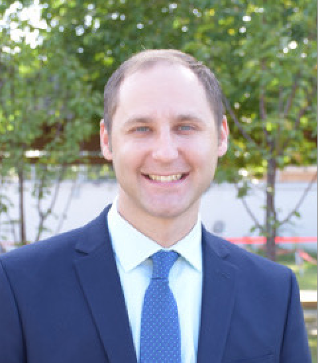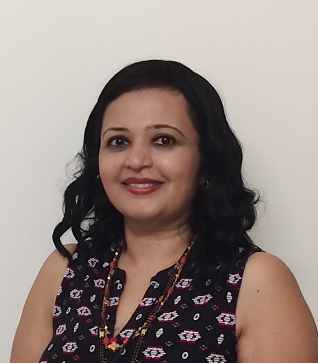Aristotle is credited with stating, “Knowing yourself is the beginning of all wisdom.” For educators, self-awareness—defined by Merriam-Webster as “awareness of one’s own personality or individuality” (Merriam-Webster, n.d.)—is especially important, as our capacity to edify others often exists in direct proportion to how well we understand and address our own needs. Said another way, “The more familiar we become with our inner terrain, the more surefooted our teaching—and living—becomes” (Palmer, 2007, p. 6).
The Collaborative for Academic, Social, and Emotional Learning (CASEL) has extended these self-awareness considerations by noting how people’s understanding of themselves influences behavior. CASEL has also named the following among their list of self-awareness key components: identifying assets (linguistic, cultural, and personal) and emotions, examining biases and prejudices, having a growth mindset, and experiencing self-efficacy (CASEL, 2020). Echoing Goleman’s (1998) suggestion that teachers’ heightened self-awareness includes “a well-grounded sense of self-confidence” (p. 318), CASEL underscores how strengthening one’s self-awareness also promotes a greater sense of purpose.
The Benefits of Self-Awareness
Existing in tandem with teachers’ understanding of the value of self-awareness is the realization that adults’ actions in schools, whether in classrooms or common areas, are on constant display. Teachers and leaders have significant opportunities to model the rhetoric and behavior that we desire our students to adopt, beginning with how we incorporate self-awareness practices into our daily work. Following are four important approaches to self-awareness that, when attended to, can strengthen educators’ confidence and capacity to serve others:
- Personal strengths and limitations. Knowing ourselves involves identifying our strengths and learning how we can tap into these attributes. If one of an educator’s strengths is inquisitiveness, for example, she can embrace the importance of asking questions to discover the unknown rather than making assumptions that may prove false. As she challenges herself to learn new things, she could ask herself: “What skills do I need to practice to enhance my interactions with others? Do I need to be a more active listener, more open-minded, or more patient? Or would I benefit from taking advantage of opportunities to stretch myself beyond my comfort zone?”
- Thoughts and feelings. Our perspectives and actions help shape our thoughts and feelings. Applying skills such as emotional self-awareness allows us to understand how our own cultures or upbringings influence how we view events and solve problems. In the classroom, we might demonstrate emotional self-awareness by critically reflecting on how unconscious biases could inform our words or behaviors during class discussions. We can model how to be active listeners, nurture environments in which students respect the opinions of others, and cultivate students’ communication skills so that they learn to share their views in ways that both honor and challenge others’ perspectives. Among other strategies, teachers’ use of discussion protocols can be helpful tools for supporting students’ respectful and rational expression of their thoughts and feelings.
- Words and actions. As two important modes of communication, words and actions are direct extensions of our thoughts and feelings. Accordingly, we must ensure that our words and actions transmit messages that align with our values. As we teach SEL lessons to students about being kind and showing empathy, we have valuable opportunities to reflect on how we treat others, taking note of potential areas for growth. When posing questions to students such as “How would I react if I were treated this way?” or “How might my words have made him feel?” we should consider taking a moment to reflect on our own responses to these questions.
- Opportunities to make amends. We all make mistakes. Acknowledging when and where we have gone wrong can be a humbling experience, particularly when our shortcomings require us to apologize to our students. However, these unsettling situations can serve as important teaching moments as students are exposed to constructive ways to respond when they’ve missed the mark in some way. When we express regret and offer merited apologies in class, we not only model open-mindedness and a commitment to reconciliation, but we also model the mindset that change and new beginnings are possible.
How Can We Become More Self-Aware?
Realizing the benefits of heightened self-awareness should encourage us to make conscious moves toward understanding ourselves better, including both the version of ourselves that we occupy now and the one we aspire to in the future. Though striving for greater self-awareness may sound like a lofty endeavor, educators can take concrete and achievable measures to help us become more self-AWARE.
- Actively participate in professional organizations. In addition to the opportunities for collaboration and networking that they yield, professional organizations typically provide practitioners with valuable resources that help us expand our current understandings and perspectives. Workshops, journal publications, and online tools are just a few of the common benefits of participation in professional organizations.
- Welcome opportunities to interact with colleagues outside of our bubble. Deepening our understanding of ourselves often requires us to cultivate conditions in which our current beliefs and assumptions can be stretched or challenged. While expanding our circle of influence can take us outside of our workplace, we can also take small steps toward change within our current school context. For example, volunteering to colead an after-school event with a colleague with whom we do not normally work or committing to have lunch with a different coworker once a month are simple actions that open doors for dialogue and diversity of thought.
- Attend cultural events or performances. Deepening our understanding of others’ ways of knowing and being will prompt us to consider our own habits of mind, including possible areas for adjustment or growth. Attending shows, fairs, and other cultural gatherings— whether virtually, locally, or beyond our current borders—exposes us to different customs and fresh insights.
- Reflect routinely. Perhaps the most elemental action that we can take as educators to promote self-awareness is to practice a regular reflection regimen. Though few would refute the importance of daily reflection, we often do not carve out time during our day for this essential practice. One approach to promoting self-awareness through reflection is to identify a brief set of questions that are significant to you that you can ask yourself each day. For example, a grade-level leader might ask: “What is one thing that I said or did today that positively contributed to a team member’s experience in working with me?” An administrator might ponder: “How did my feedback to Ms. Jones reflect a growth mindset and project the confidence that I have in her as an educator?” And a paraprofessional or classroom teacher might consider: “What biases or unchecked assumptions might have contributed to my reaction to students’ behavior during our morning assembly?”
- Engage in learning teams. A relatively low-risk option for many teachers seeking to collaborate with colleagues is to engage in book studies or other forms of professional learning teams. Related to the value that professional organizations provide, learning teams nurture opportunities for educators to evaluate, alter, and add to their current knowledge and skills in areas that match their interests and needs.
As educators, we are constantly evolving. We evolve professionally as we assimilate new ideas and strategies into our work. We also evolve personally as we progress through various life stages. A key to thriving throughout each transition that we face, to contributing positively to our school’s culture, and to maximizing our instructional effectiveness in the classroom is to practice self-awareness regularly and intentionally.
See References Here

Dr. Colt Turner
Dr. Colt Turner has served in many educational roles in the United States and internationally—as a secondary teacher, university adjunct instructor, school improvement director, elementary principal, and director of teaching and learning. Colt’s education background includes an undergraduate degree in education, master’s degrees in curriculum and instruction and educational psychology, and a doctorate in supervision, curriculum, and instruction.

Dhanya Bhat
Dhanya Bhat has over 20 years of experience both in the United States and inter- nationally as a counselor, head of mental health/counseling, and student support services director. Dhanya is a licensed professional counselor (LPC) in the state of New Jersey, a national certified counselor (NCC), and she is board certified in special education and has certifications in school management and leadership (CSML) and college counseling.
